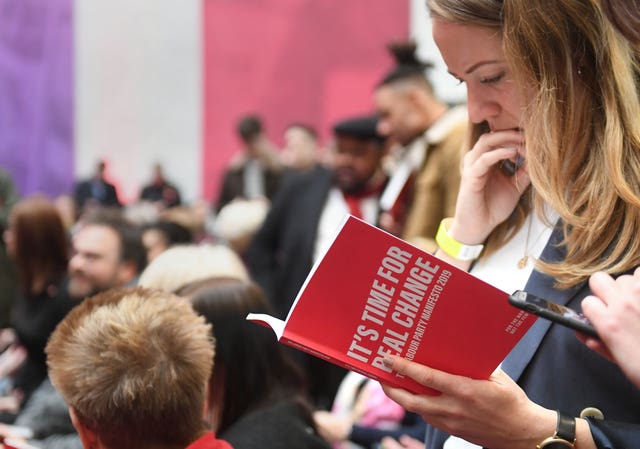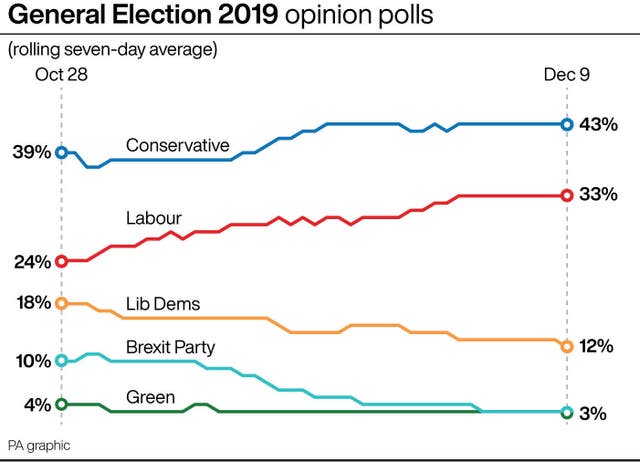/arc-anglerfish-arc2-prod-expressandstar-mna.s3.amazonaws.com/public/SCJGK4M7YFAANN476IC3ETEIQM.jpg)
Labour’s plans to nationalise services: Everything you need to know
The party’s manifesto said it would like to take mail, water and train operators, among other things, back under public ownership.
Labour wants to nationalise mail, water, energy distribution and supply, train operators and fibre broadband provision.
In its 2019 manifesto, the party said: “Public ownership will secure democratic control over nationally-strategic infrastructure and provide collective stewardship for key natural resources.”
However, some have questioned the £200 billion price tag for such policies. How would the party go about its plan if it wins Thursday’s election?

– Energy
Labour wants to bring gas – privatised in 1986 – and electricity – in 1989 – back into public ownership.
This would include both the supply side and distribution networks across England, Scotland and Wales.
A new National Energy Agency would own the transmission networks and take over some of the policy functions of the Department for Business, Energy and Industrial Strategy. A system of regional, municipal and local bodies would also have an input to the system with responsibility for decarbonisation and tackling fuel poverty.
– Water
Bringing the water industry back in-house is another priority for the party.
The clean and wastewater industry was mostly privatised in 1989 and split up into regional companies.
Labour would keep the regional structure but transfer ownership to new regional water authorities.

Royal Mail was privatised between 2013 and 2015 and part of Labour’s plans for the postal service includes setting up a Post Bank which would operate from Post Office premises and support personal and business banking.
– Rail
The UK’s 17 rail operators would be brought back into public ownership once their franchises end, under Labour’s plans.
For more than half of the past decade, the East Coast franchise has been run by the Government, following two failures by private companies. First under the East Coast brand between November 2009 and February 2015 and then as LNER from May 2018 until now.
Network Rail, which maintains rail infrastructure, is already publicly-owned.
– Broadband
Last month, Labour said it wants to nationalise Openreach – the BT broadband infrastructure firm – in order to offer free full-fibre connectivity to every home and business in the country by 2030.
– Opinion polls
Polls suggest 65%, 60%, 59% and 53% support public ownership of Royal Mail, railways, water and energy companies respectively, according to a YouGov survey from 2017.
Another YouGov poll commissioned after Labour announced plans to give free broadband to every household and business was supported by 62% of the public.
How much would it cost?
According to the Institute for Fiscal Studies, Labour’s plans would bring at least 5% of the total UK assets currently held by private companies into public ownership, lead to an over £200 billion increase in the assets owned by the public sector and would add more than 310,000 to the size of the public sector workforce.
It would also bring at least £150 billion of debt onto the public balance sheet on top of the sum paid out to the current owners of these assets in compensation.
The IFS said the cost of appropriately paying for these companies is uncertain as many of them are privately owned and could come to “many tens of billions of pounds”.
How would Labour do it?
In the first 100 days of a Labour government, the process of bringing water and energy into public ownership will begin.
At a speech in London on Monday, shadow chancellor John McDonnell said: “We’ve already started our meetings with the Treasury officials, they are working up plans and getting ready to implement this as soon as we go into power on Friday morning.”
What does business think?
Rain Newton-Smith, Confederation of British Industry chief economist, said the cost of the renationalisation plans was “eye-watering”.
She said: “That’s only the starting point. It doesn’t take into account the maintenance and development of the infrastructure, the trickle-down hit to pension pots and savings accounts, or the impact on the country’s public finances.”
However, Kam Gill, policy officer at the Trades Union Congress, said: “The ability for the state to push through more ambitious decarbonisation measures, while ensuring a just transition for workers, is one of the key reasons advocates support public ownership of energy.”